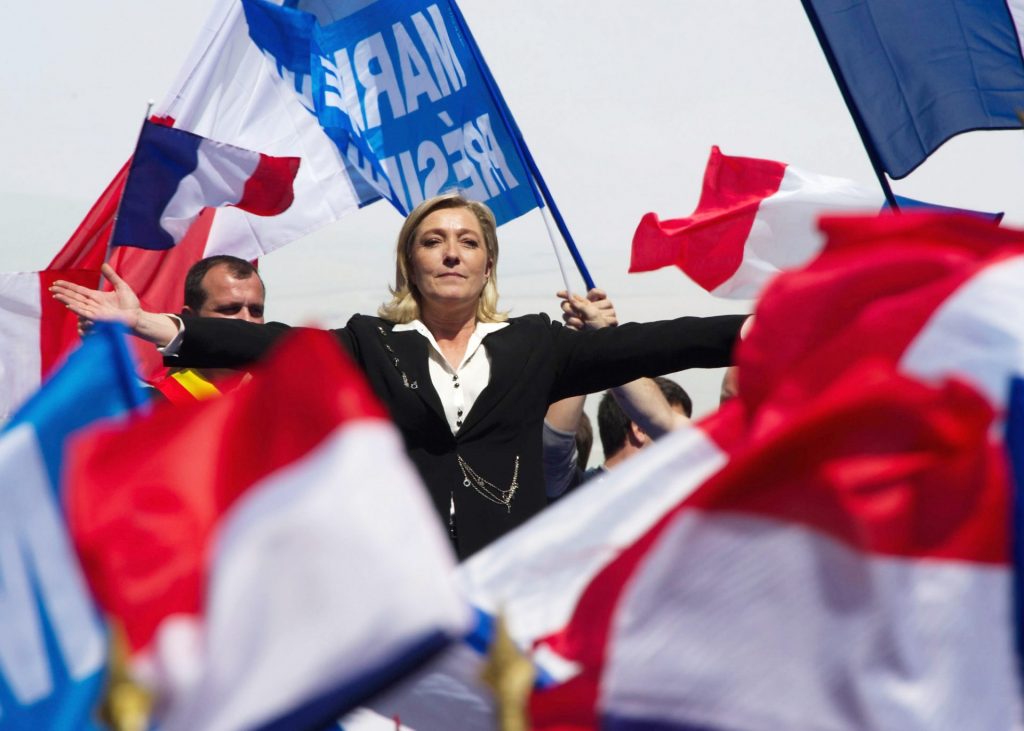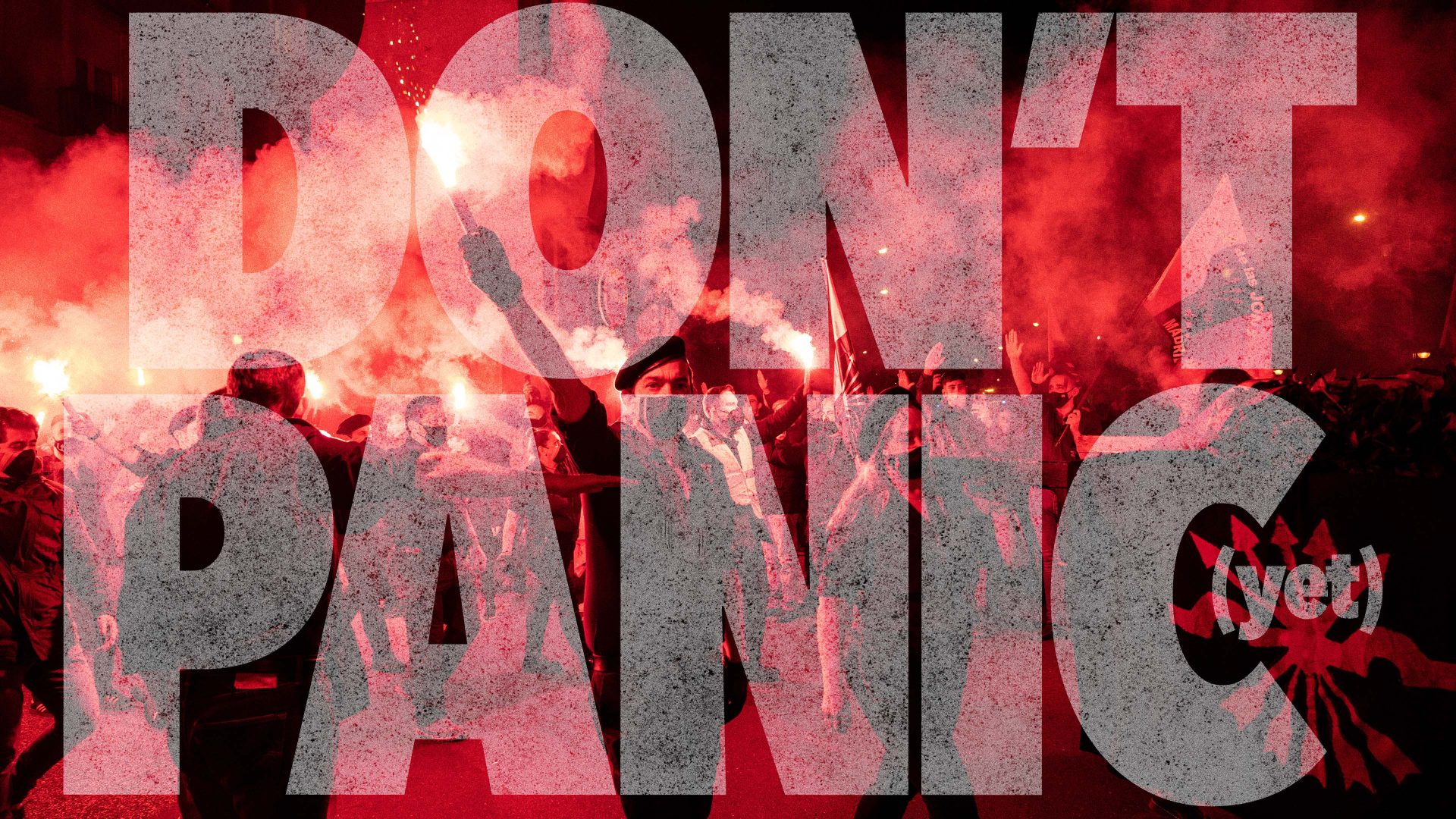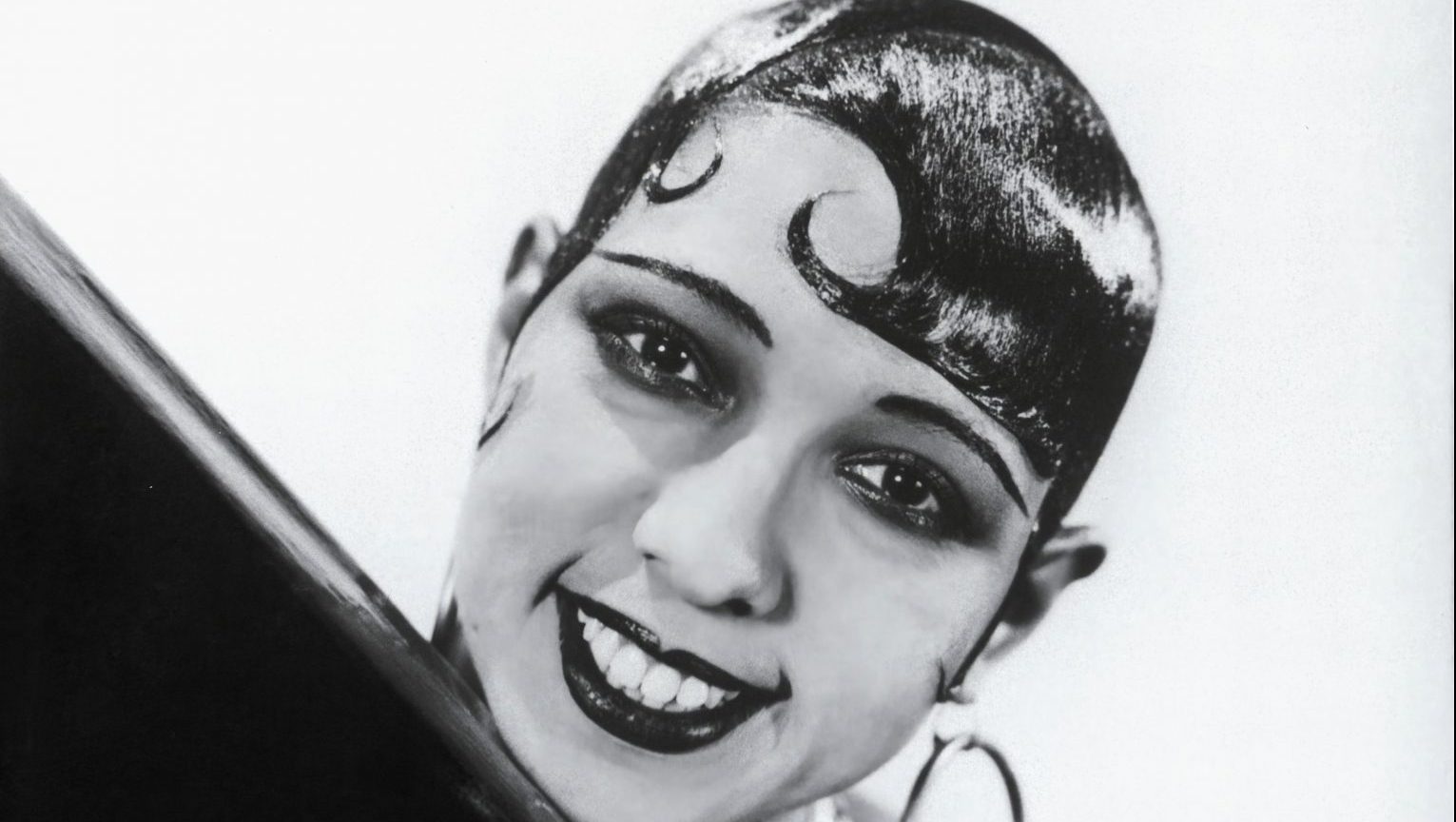The situation ahead of June’s European elections looks bleak.
Guy Verhofstadt calls it a “nationalist nightmare”. The European Council on Foreign Relations thinktank predicts that far right parties will win a third of all seats, giving them the ability to block the nomination of the next EU Commission president, prevent action against rogue states and pack committees with far right populists. The right wing thinker Matthew Goodwin writes that “nothing can stop the drift to the right” and proclaims in the Guardian that “national populism is unstoppable.”
Grim stuff, but maybe we should relax a bit. These dire predictions were not made ahead of the 2024 votes across Europe, now just 100 days away. They all came at the same stage of the electoral cycle five years ago, and the apocalyptic visions contained within them did not come to pass.
What happened instead? In the European Parliament, extreme right, nationalist, populist, anti-immigrant parties ended up with only 138 seats out of 750. Poland and Hungary did go rogue, but were subsequently threatened with suspensions and had some of their EU funding blocked. Partly as a result, Poland’s anti-EU PiS nationalist party was voted out of office last summer, and while Viktor Orbán may make lots of pro-Putin speeches he has also agreed to support Sweden’s entry into Nato in return for having some EU money unfrozen.
And yet the 2019 panic is back. Goodwin wrote recently that, “Populism is on the march throughout Europe,” citing opinion polls predicting big gains for the far right in June. Goodwin is only 42, so no doubt we will be reading him in 2029, 2034 and 2039 claiming that this time, the far right is definitely going to sweep the board, while in Britain the Reform Party is poised for a electoral breakthrough.
What encourages these views is the tendency of European elections to produce medium-to-low turnouts that amplify angry protest votes, many of which go to noisy populists. There is a reason why Nigel Farage was elected to the European Parliament five times but failed miserably on each of the seven occasions he tried to become a Westminster MP.
In European elections, voters go to the polls – or stay at home – knowing the parliament can’t do much to address their grievances by making legislation. Though theoretically it can block legislation introduced by the European Commission, it is the European Council, made up of European heads of state and key EU ministers, that has the final say on what becomes law or not. Its power is to “advise and consent”.
In consequence, many of its MEPs choose to spend a lot of time making noise, but very little time actually doing anything. Farage found it a role he was well suited to – lots of perks, lots of opportunities to make preposterous speeches, but very few meaningful things to do. A supposed backer of UK fishers, he was given a role on the EU Fisheries Committee but attended only one of 42 meetings.
Similar detachment was shown by Ian Paisley, Jean-Marie Le Pen and the Netherlands’ Geert Wilders, each of whom were elected to the EU parliament but chose to play little part in its deliberations. Yet they were able to create plenty of volume, encouraging others of their ilk to seek election not to a parliament, but to a platform for their views.
One consequence of having all these self-important, individualistic MEPs is that there are 207 national parties represented in the European Parliament. That’s Europe for you – a giant mosaic that’s nothing like the monolith described by anti-European isolationists in England.
While they are unlikely to achieve the board-sweeping predicted in some quarters, it is likely that this June will see more hard right MEPs elected as a protest vote. They are targeting the votes of those concerned about rising numbers of immigrants and asylum seekers, those who feel left behind by what might be called the Davos-focused liberal economic zealots, those who are worried by net zero green politics and the pressure these could put on low-paid workers.

But as Marion Van Renterghem identified in a piece for the New European a couple of months ago, any gains made by the hard right will be muffled somewhat by its fractiousness and absence of a common purpose. If the European hard right is going to take over Europe then it will have to unite. But they hate each other more than they hate Europe.
Initially, the hard right representatives in the European Parliament joined the European Conservatives and Reformists group, set up by David Cameron in 2009. This now has a rival, in the Identity and Democracy group, where the neo-Nazis from Germany’s AfD, and from Lega, the nastier of Italy’s two far right parties, work with representatives of Marine Le Pen’s Rassemblement National.
Lega’s leader Matteo Salvini, Italy’s Suella Braverman-style deputy prime minister, would do anything to topple prime minister Giorgia Meloni, leader of the Brothers of Italy Party, which remains in the ECR group. Meloni has put herself at the top of her party’s candidate lists for the EU elections despite having no intention of serving in Brussels, and appears to be treating June’s poll as a test of her personal popularity. This does not speak of a hard right that is ready to come together to confront the centre and left.
The fault lines go wider than just a personal feud in a single country, however. Europe’s far right is divided on how to handle Vladimir Putin, and while some support Brexit-style referendums, the sense that Brexit has been a failure with a negative impact on the economy has led others to ditch their long-standing demands for a closure of frontiers and a return to Liras, Francs and Deutschmarks.
As the veteran Labour European politician and former MEP Richard Corbett notes, the extreme right parties standing for the European Parliament “are reactionary against different things. Some pursue an ‘anti-woke’ agenda on race, women’s rights and LGBTI issues. Some are economic neo-liberals, others are interventionist. Several are ultra-nationalist, which leads to conflicts among them (such as when the Italian and Austrian far right fell out over the status of the South Tyrol, the formerly Austrian German-speaking area of northern Italy).”
Adds Corbett: “In the European Parliament, they have never been able to constitute a cohesive force. The political groups to the right of the mainstream centre-right European People’s Party have constantly been dissolved, recreated with new permutations, split, argued and lacked meaningful influence. Even if they do win a few extra seats, that is likely to remain the case.”
Moreover, the dominant centre right, centre left and liberal parties which include the EU’s strongest political figure, French president Emmanuel Macron, are well aware of the anger among European voters on immigration, the hostility to net-zero and green policies, which have led to major farmers protests in recent weeks.
The commission is backtracking on anti-pesticide policies and winding down cuts to farmers’ fuel subsidies. So far, while the far right can make some gains, they are still likely to fall well short of dominance in the European Parliament. Polls in February gave the democratic pro-EU parties 495 MEP seats and 183 for the far right, populist nationalists.
Those endlessly predicting the end of European Union democracy and a return to 1930s-style nationalism and racism need to learn how to count. In European as in national politics, it is useful to do the numbers before believing anything that the doomsayers of Europe in England predict. Today’s far right, often with its roots in pre-1940 fascism, is no stronger than the Stalinist pro-Soviet far left was in France and Italy between 1945 and 1975.
There has been a modish academic line for more than a decade that the far right would take over Europe. Yet while they have made some gains, voters in Poland and Spain last year rejected the ugly right (a better description than far or radical right) whipping up anti-immigrant hate. The ugly right may win headlines and individual battles, but it does not yet win enough votes to take over Europe.
Denis MacShane is a former minister of Europe. His new book Labour Takes Power. The Denis MacShane Diaries 1997-2001 is published by Biteback.
WHAT THE POLLS SAY
GERMANY
Economist-turned-MP Sahra Wagenknecht’s new left wing party is in line to win seven seats. But her “left wing conservative” ideology may not fit within existing left groups in the EU parliament and could cause a realignment.
FRANCE
Fuelled by farmer protests, the far right is surging. Polls put Marine Le Pen’s National Rally at 33%. If that’s repeated at the ballot box, Emmanuel Macron’s Renaissance party is in for a trouncing.
ITALY
Giorgia Meloni’s party is predicted to make big advances in these elections, possibly becoming the single largest delegation in the entire European Parliament and winning up to 27 seats.
SPAIN
The EU vote will effectively be a vote on PM Pedro Sánchez, and his deal last summer with the Catalan nationalists. He can expect a backlash. The centre right People’s Party and the hard right Vox will be the winners.
POLAND
Having been thrown out of government last year, the hard right Law and Justice Party, PiS, is threatening to make a comeback, potentially even winning the largest vote share. The European Coalition, a centrist party, should run it a close second.
SWEDEN
In a rare example of a centre left surge, the Social Democratic party is expected to top the polls. The extreme right wing Sweden Democrats will probably take second place.



